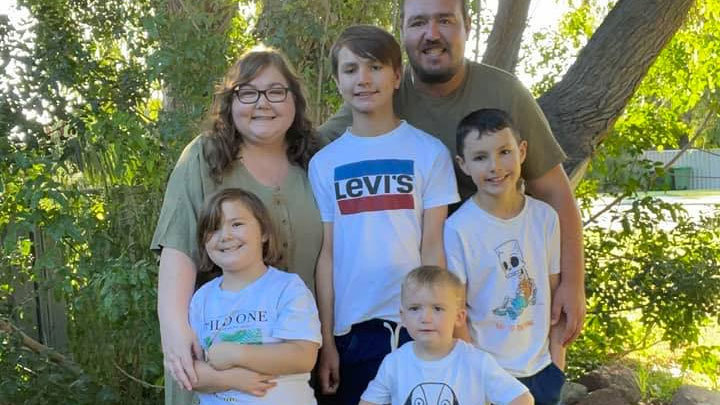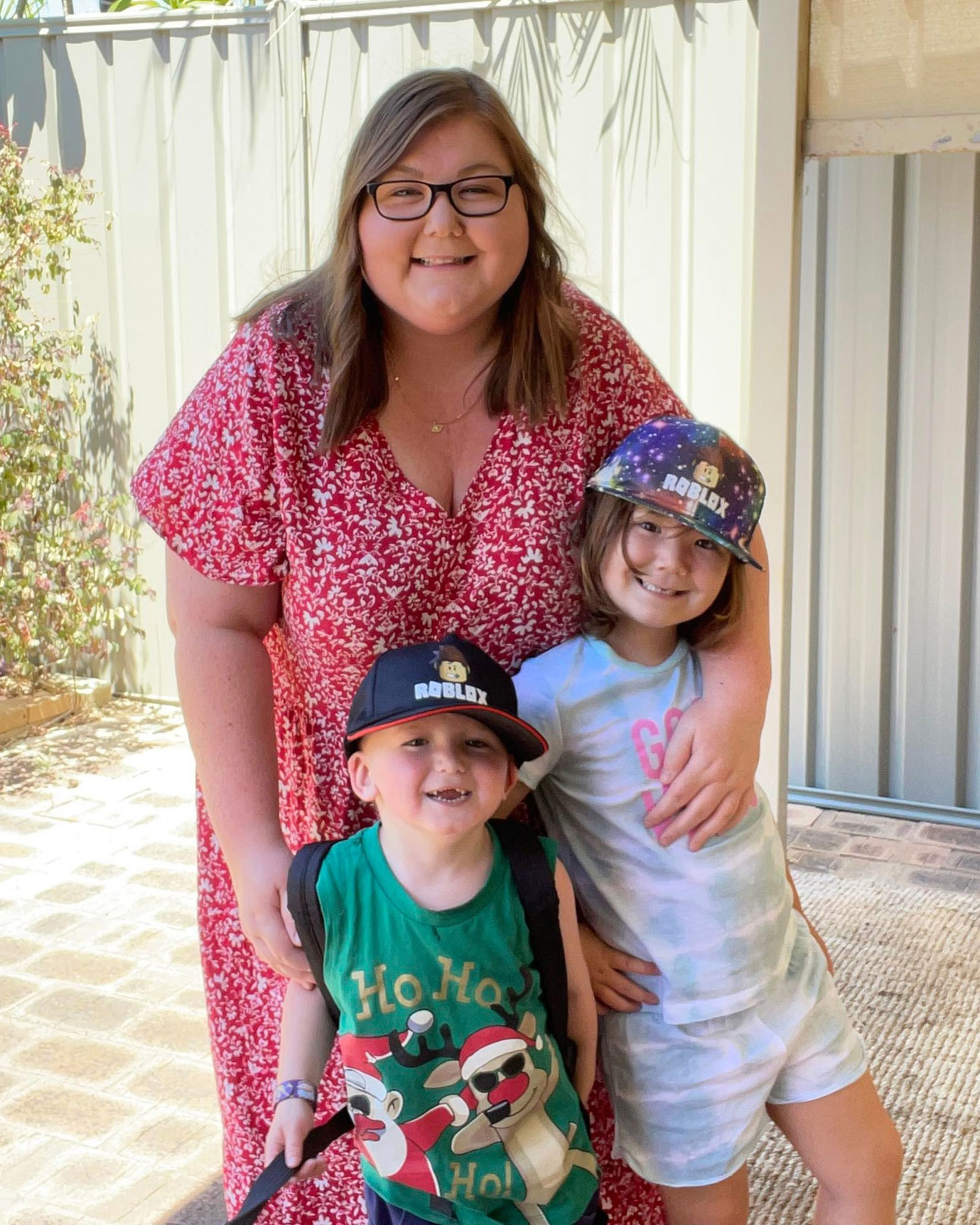The day Ashlee Dyer suddenly lost her vision was like any other ordinary afternoon.
The mum-of-four, from Perth, was standing in the middle of the lounge room and mucking about with her kids.
"I was about to do a TikTok dance with my daughter and everything just went completely black," Dyer said, recalling the afternoon in February last year.
Frightened and confused, Dyer, 36, said she immediately burst into tears.
"I was crying and just thankful that my husband was there because otherwise I would have been home with my kids by myself."
READ MORE: Spring to abruptly end for millions of Aussies
Although she was scared, Dyer said she initially resisted her husband's suggestion to go to the hospital.
"My automatic reaction was I'll just sleep it off. I'll just go for a nap and I'll be fine," she said.
After about five minutes, Dyer's vision slowly returned, but it was still far from normal.
"It came back, but it was sort of pixelated," she said.
"It's hard to describe, it was kind of like I was underwater."
READ MORE: Qantas' reputation is mud. How do you fix it?
Dyer also had a headache at the time.
When it became clear her vision wasn't getting any better, Dyer decided to go to her local hospital after all.
But the place was packed, and Dyer said she felt like her symptoms were being brushed off as a migraine.
"I went to the hospital but I ended up discharging myself because basically I was told it was a migraine," she said.
Dyer was convinced this wasn't the case.
"I knew there was something else going on," she said.
"I just felt like I had to keep rubbing my eyes to see.
"So I ended up booking the appointment with an optometrist at Specsavers for the next day."
It was a move Dyer credits with saving her sight.
The optometrist, Jessica Templeman, ran multiple tests and found the optic nerves behind both of her eyes were swollen.
"She basically said that she wanted me to go straight to the emergency room," Dyer said.
Templeman directed Dyer to the Royal Perth Hospital where there is a specialised ophthalmology clinic.
"She was amazing. She actually called ahead and told them that I was coming," Dyer said.
At the hospital, doctors discovered Dyer had a rare condition called intracranial hypertension, where a build-up of fluid in the brain leads to increased pressure, often causing headaches and vision loss.
Templeman told 9news.com.au intracranial hypertension generally affected about one in 100,000 people.
Contact reporter Emily McPherson at emcpherson@nine.com.au
"It can have no symptoms, especially during the early stages. This is why it is important to get regular eye examinations with a retinal scan so it can be detected before it progresses further," she said.
Other symptoms can include blurred or double vision, severe headaches, nausea and vomiting.
"I was told that, if Jessica hadn't found what she found, and I just let it go, I would have lost my vision completely," Dyer said.
Doctors worked quickly to perform a lumbar puncture to drain the extra fluid in Dyer's brain.
A few weeks later, Dyer underwent surgery to have a brain stent inserted to keep the fluid from building up again.
Dyer said doctors weren't sure what had caused her to develop intracranial hypertension, but it was likely something she had had for some time.
"Thinking back now, I did have some headaches leading up to it," Dyer said.
"But I've had high blood pressure my whole life, so I didn't think there was anything different going on."
Dyer said she wanted to share her story to raise awareness about the condition and remind others how important it was to trust your instinct when it came to your body and seek second opinions.
"I'm so grateful that I trusted my gut," she said.
"It actually gives me shivers just even talking about what could have happened."





